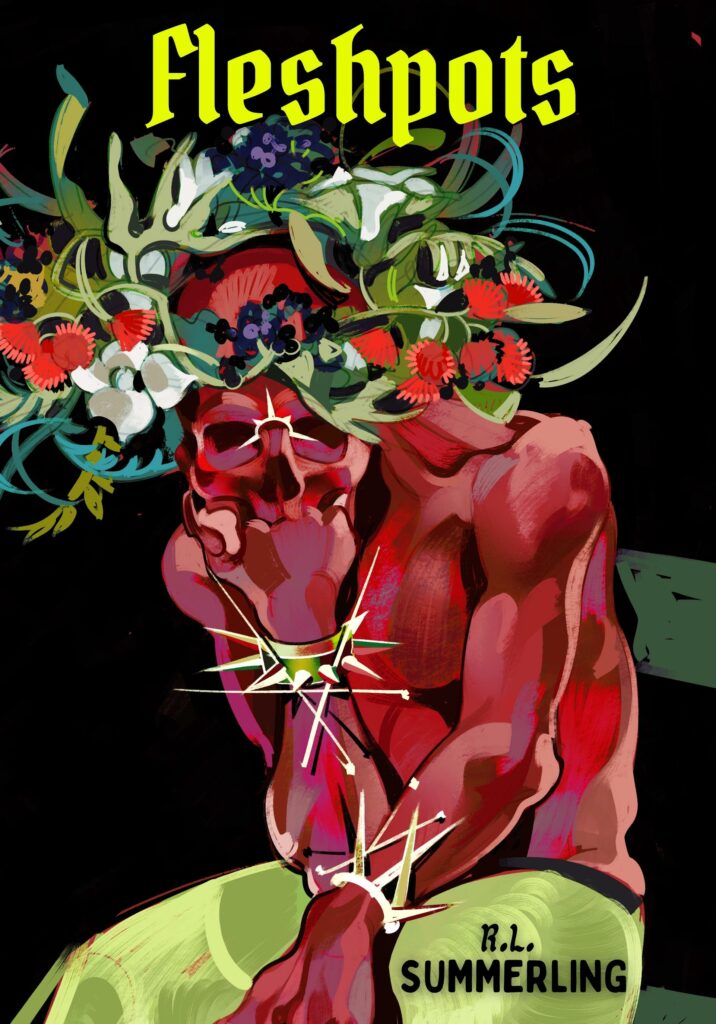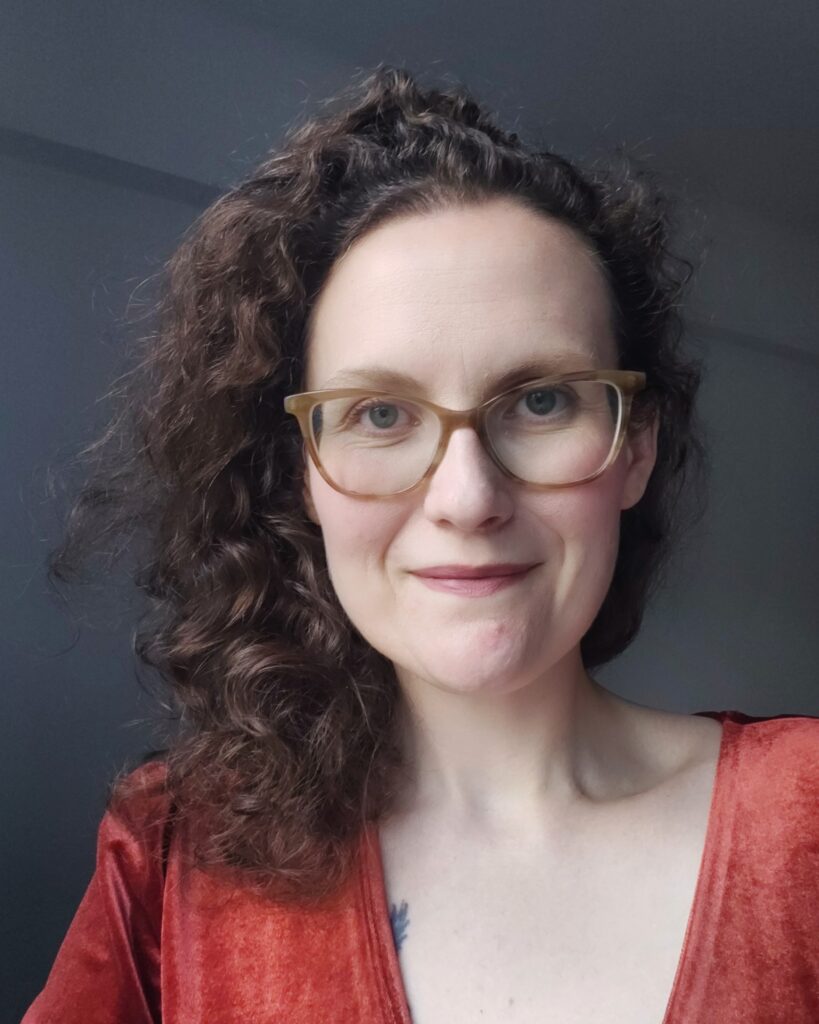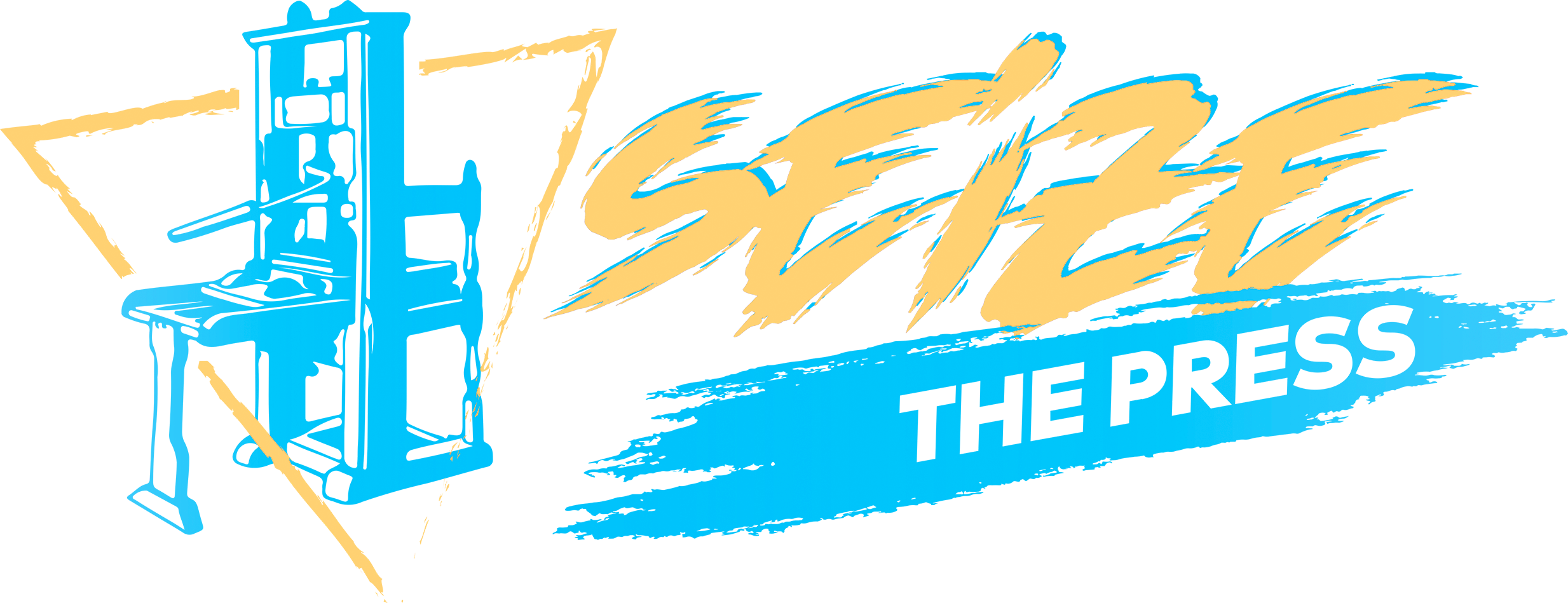Jonny Pickering: Hi Rebecca, thanks so much for chatting to us. Before we dig into your writing, I’d love to talk film with you for a minute. We both share a love of Ben Wheatley’s dark fantasy horror film A Field In England for its unsettling vibes and refusal to over-explain anything to the viewer. What draws you to that kind of storytelling and do you think there’s inspiration to take from that approach as a prose writer?
R.L. Summerling: I hadn’t thought about this until now, but A Field in England really does encapsulate a lot of what I enjoy, both as a writer and a reader. I love mysterious, surreal stories that drop you in with little to no hand holding. That is not to say I enjoy things that are deliberately obtuse, but I love it when writers truly embrace the mysterious instead of using it as a device to drive the plot forward, with the final reveal being the story’s conclusion.
The film’s small budget works to its advantage in my opinion, Wheatley uses every tool in his kit to create the foreboding atmosphere. The sound design, for example, is incredible. That scene we both love where Whitehead is tortured in the tent is such a good example of use of point of view. We, the audience, assume that we are seeing things from the perspective of the men outside the tent. They wince as they hear Whitehead’s screams. We anticipate that he will come out from the tent bloodied and wounded, but when he does eventually emerge it is so much more sinister. The magic is hinted at, but we never find out what happened to him. Everything we assume that happened in that tent is wrong and we’re left to wonder whether the other men had some idea what kind of psychic torture Whitehead was undergoing.
Narrative techniques like that are really interesting to me in my own writing, that gulf between what the reader knows and what the characters know. How you can play with information, who knows what and when and how that can be exploited to create dread in the reader.
So much of your work centres around crumbling cities and decaying environments. Why is that theme so prevalent in your writing?
I love the part that landscapes play in the gothic, that bleak hostile environments are a representation of a fractured mind. The idea of the sublime really inspires me; that there is something so vast and so unknowable that it’s terrifying, elevating and beautiful at the same time. For similar reasons, I also like unpeopled places, whether that’s cities or edifices that have been abandoned by humans or landscapes. There is a hostility there of course, but also I find it comforting in a nihilistic sort of way.
One of the things I admire about the way you explore that theme of degradation is that you don’t sugarcoat the dejection many of us feel about the state of our own deteriorating environment. There’s a difference I think between inspiring genuine hope and selling empty cathartic reassurance, and I find that a lot of ‘hopeful’ stories are simply the latter. Where do you see your own work on the scale of hopeful or pessimistic? Is that even a useful yardstick and is it the writer’s job to offer either of those things?
I don’t believe it is the responsibility of a writer to provide solutions to the world’s problems. Not every story needs to be depressing as fuck (I bet you’ll disagree!) but if we’re dealing with something as serious as climate change, then you don’t get to look away from what is happening. We are all complicit in it, one way or the other and I think it is the responsibility of the reader to own up to that. A writer can only reflect the world back to the reader. Maybe other writers see more hope in the current situation than I do. I am incredibly pessimistic about the future, but feel I can’t express that in my everyday life, as it’s something many people don’t want to dwell on or even engage with. Putting my fears into writing is freeing to be able to say what I mean, even if that is through the lens of fiction.
In terms of my own writing, I simply don’t feel like I have the skill to be able to write something hopeful that doesn’t come across as condescending. However, the most hopeful story I’ve engaged with recently is Andor (one of the best left wing, anti-fascist pieces of media coming from Disney, who could have guessed? Not me, and I’m a Star Wars fan!) It actually addresses the fact that to make a stand, you will encounter resistance, that self sacrifice is necessary for greater change. The show takes its time to develop how a character could be persuaded that’s the path they want to take. The thing I find most hopeful about it is how it shows that when people are pushed to their limit, they will wake up and fight back.
One of my favourite stories you’ve written is “Oh God How They Hurt Me”, published by Northern Gravy. It also touches on themes of deterioration, only this time the economic and cultural destruction of British mining towns during the Thatcher years and its effects on the people who live there. What’s your philosophy on political commentary in fiction and how do you make sure it doesn’t come across as ham-fisted or didactic in your own work?
I feel very strongly that all fiction is political and that any attempt to make a story apolitical is a political decision in itself. I was born in 1987, so I didn’t live through the Thatcher era, but my mum drummed into me from a young age the damage she did to this country. And I think we never really recovered from that, that you can draw a direct line between the decisions that were made then and what we’re facing today.
I think the only way to try and avoid something coming across as too didactic is not to start a story from a concept. If you start by thinking “I want to write about anti-fascism”, then it’s always going to feel forced, it has to be embedded into the story. This is something I think Karlo Yeager Rodriguez does so well with his Seize The Press story “Vanishing”. You understand completely the statement he is making, but it is baked into it, you can’t separate out the politics from the other elements of the story.
Earlier this year you released Fleshpots, your first short story collection. How did you find putting together your first collection? What are some of your favourite stories from Fleshpots?
I really loved it. Licensing artwork, requesting paper samples, all that kind of thing is so satisfying to me! It was really nice to self publish something as well, to have complete control over each part of the publishing process. As a writer, sometimes you can feel so helpless when you’re submitting stories and all you can do is sit and wait and it helped me feel like I had a bit more agency over my work.
One of my favourite stories in the collection is If You See Me, Weep, which I feel encapsulates a lot of what I want to say in my writing. I wanted to write about ecocide on a very small scale. A lot of environmental fiction deals with big macro events, Fury Road style worlds, for example, where water becomes more valuable than gold. In this story, however, I wanted to explore the impact of invasive species on someone’s everyday life. There’s so much horror in that. The idea that something relatively innocuous can spring up completely out of season, it’s disorientating and uncanny.

There is a park near where I live that has a small lake that has been covered in blue-green algae for the past couple of months. I’ve never seen that happen before and I read about how it is harmful to aquatic plants, fish, waterfowl and also humans if they come into contact with it. Everytime I walk past it, I think of this story.
I also have a soft spot for The Twisting Ascendance of Silk which I think betrays the collection’s subtitle (‘a small collection of feel bad fiction’) I love writing about performance, but am rarely able to pull it off in a way I feel happy with and this is the one exception. It is a story of radical transformation and connection. A very personal story for me and one I revisit a lot in my own mind.
You did a limited print run of Fleshpots and gave copies away for free. What made you give them away when people were clamouring to throw money at you?
It was something I wanted to do purely for my own enjoyment and the idea of asking people for money for it stressed me out. I had budgeted everything carefully, so I knew how much I could afford to spend, which took the pressure off. It reminded me of swapping zines and letters with friends I’d made on internet forums as a teenager in the 00’s
I have to say though, it was a privilege to be able to do it this way. I am not recommending other people should do something similar unless they are financially stable enough to do so.
I always like to ask in interviews what people have been reading lately and know you read some off-the-beaten-track stuff, so I’m looking forward to hearing what you’ve been reading. Anything you’d recommend for lovers of the uncanny?
I’ve been reading a lot of older books this year and it’s been really great to discover some new-to-me classics. These are three books I’d recommend! The Woman in the Dunes by Kōbō Abe, a claustrophobic nightmare of a book in which a man finds himself held captive in a house at the bottom of a sand pit. If you dislike that feeling of sand between your toes, get ready to hate it even more.
The Palace of the Peacock by Wilson Harris. This is one of those books that you just have to let yourself get taken away by. Nothing is real, everything is real. A journey through colonial Guyana, in a sinister, kaleidoscopic jungle. Beautiful, lush, dreamlike language. I need to read the rest of Harris’s Guyana Quartet, it’s on my (very long) TBR!
And lastly, I’ll recommend Ice by Anna Kavan. A trip of a book set in the middle of an apocalypse where the world is being consumed by ice. Very unnerving. No plot, all vibes.
2023 seems like it was a great writing year for you. Do you have anything else coming out soon? Are you working on anything exciting we can look forward to in the future?
Thank you! It has been a really good year, I think I’ve really started to understand the kind of thing I want to write and I’m getting a sense of the kind of places I want to be published by. It’s also been really good to solidify some writing friendships. I find it really hard asking anyone for help, like with beta reading and such, but I’m learning how invaluable a support network is.
I have a couple more stories coming out over the next few months, one of which is a prequel of sorts to “Bone Crush”, which first appeared in Seize The Press! That will be appearing in the next issue of Old Moon Quarterly. I’m looking forward to having a bit of time to reset and decide what’s next. I’m really keen to keep refining my short story writing craft, that’s my number one priority. However, I find having another writing related project on the go at the same time helps me not get too caught up in my own brain!
Thanks so much Rebecca, it was a pleasure to have you here.
Thanks, this has been great! And let me take this opportunity to say congratulations for Seize The Press Year Two. Every issue I read, I think to myself “Ok, this is the strongest issue yet” I speak on behalf of the sickos.jpg aligned community when I say that we’re all very grateful for your hard work putting our weird stuff out into the world!

R.L. Summerling
R.L. Summerling is a writer from South East London. In her free time she enjoys befriending crows in Nunhead Cemetery. She has previously been published in Interzone, Maudlin House, Northern Gravy, Seize the Press, and more. This year she released her first collection of work entitled Fleshpots, which is free to download on itch.io. You can find her at rlsummerling.com and on Twitter, Instagram and Bluesky as @RLSummerling
